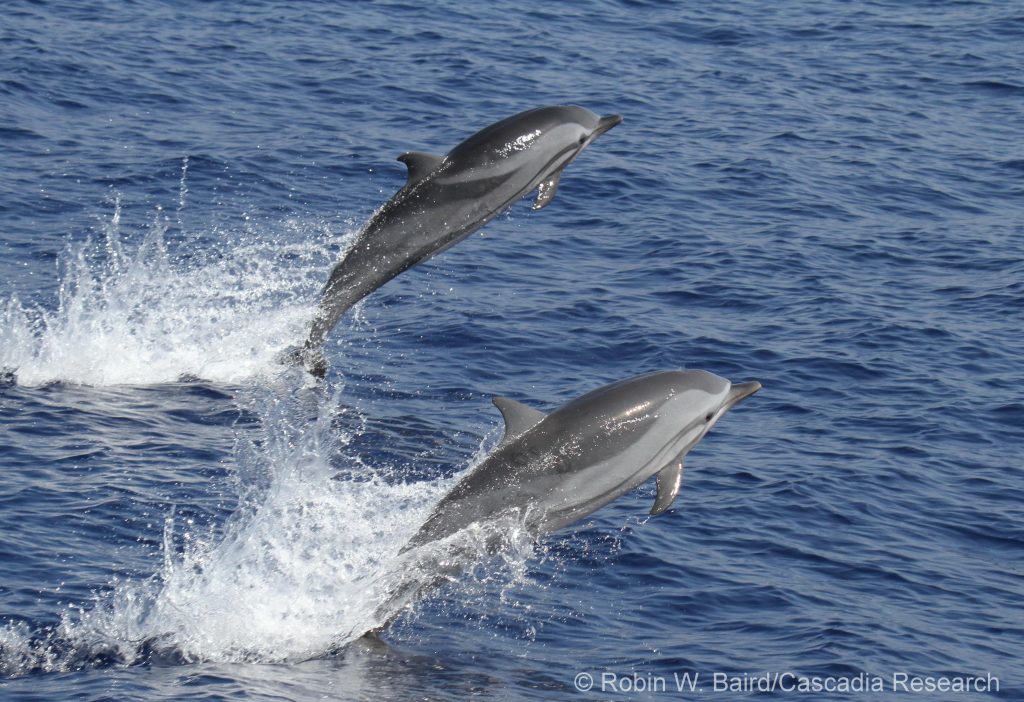Dolphin strandings linked to infectious disease that can spread to humans, research shows

University of Hawaiʻi at Mānoa’s Health and Stranding Lab scientists say they are concerned after three striped dolphins stranded on east Oʻahu shorelines over seven days and tested positive for Brucella ceti, a bacterial infection that can transfer from animals to humans. The UH researchers say the three cases could signal a much larger problem for dolphins and whales in Hawaiian waters.
Two of the dolphins were found in Waimānalo on June 7 and 8, and the third was found in Waikāne on June 15. Cultural practitioners were present at each response and advised the UH first response team.
Public urged to keep distance, report strandings
In humans, the infection can cause flu-like symptoms, neurological issues and chronic arthritis if untreated.
“Brucella ceti can be dangerous to humans who touch infected marine mammals,” said Kristi West, associate researcher at UH Mānoa’s College of Tropical Agriculture and Human Resilience (CTAHR) who directs the university’s Health and Stranding Lab. “It is best to be cautious and avoid touching or handling stranded animals. We strongly urge the public to report any whales and dolphins in distress in the ocean or stranded on beaches.”
Since most carcasses are never recovered, public reporting is critical for understanding threats to marine mammal health.
“Dolphins and whales are recognized sentinels of ocean health and give us signs and signals about what’s happening out there,” said West. “Three strandings within one week likely represents many more dolphins that died and were lost at sea. It raises our concern about what’s happening to the animals in their ecosystem.”
New bacteria strain
CTAHR researchers identified striped dolphins as especially vulnerable to Brucella ceti and discovered the bacteria in other species of stranded dolphins and whales. The researchers published their findings in the Journal of Wildlife Diseases in May. Between 2000 and 2024, they found the bacteria in seven species including pygmy killer whales, sperm whales, spinner dolphins and a Longman’s beaked whale. Many of the animals that tested positive showed severe brain and lung infections, with coinfections by viruses such as morbillivirus and herpesvirus.
Working alongside UH Manoa School of Life Sciences microbiologist Michael Norris, the team has recently discovered a new strain of Brucella ceti in Hawaiian marine mammals that is likely the cause of the recent strandings. Work is ongoing and UH will continue its investigations this summer.
This research is made possible through a Zoonotic Disease Initiative grant from the US Fish and Wildlife Service to the Hawaiʻi Department of Land and Natural Resources.
Report dolphin/whale strandings
Sightings of dead or distressed marine mammals can be reported to the toll-free statewide NOAA Marine Wildlife Hotline at 1(888) 256-9840.



